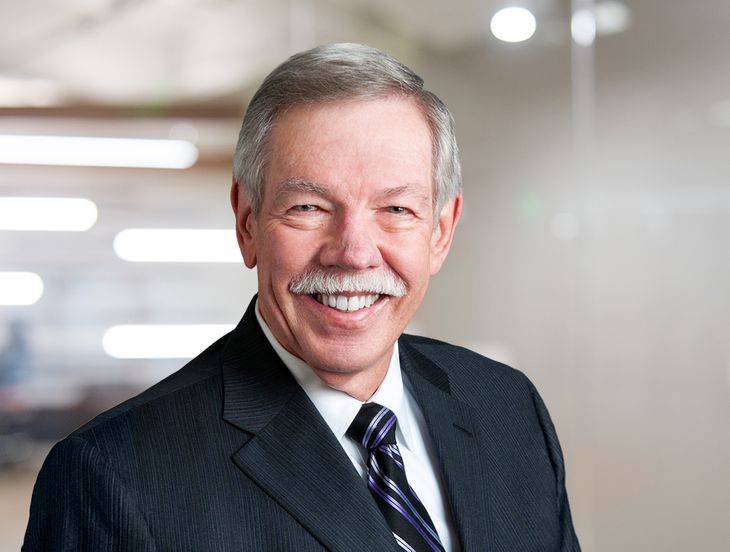100-Day Recap: Workplace Law Under President Trump, So Far
Insights
5.02.17
New presidents are often judged based on their accomplishments in their first 100 days in office. President Trump is no exception to that rule. The Trump administration recently passed that milestone date, offering an opportunity for observers to assess how the initial stage of his presidency has gone. Just as we gathered our firm’s collective wisdom to offer predictions on what the Trump administration would mean for workplace law, we now tap back into the minds of the firm’s foremost thought leaders for a quick recap on how the first 100 days have treated the nation’s employers.
Immigration
“Immigration reform is still the centerpiece for the Trump administration,” says Shanon Stevenson, a partner in the firm’s Global Immigration Practice Group. As most are aware, the Trump White House has spent a great deal of time working on immigration-related matters during his first 100 days in office. Although the administration was dealt two major setbacks when federal courts blocked his two executive orders seeking to institute a travel ban for citizens of majority-Muslim countries, the White House has still sought to advance the ball with respect other immigration-related matters.
For example, Stevenson points to the president’s budget request seeking $15 million to expand the federal E-Verify program on a national level, perhaps even requiring its use for all employers. He also requested to hire 10,000 more Immigration and Customs Enforcement agents to assist with compliance efforts. Not long ago, he also directed a full review of the H-1B visa program as part of a continued push to clamp down on companies that hire foreign labor instead of American workers. The centerpiece of this directive – dubbed “Buy American, Hire American” – is a proposal to replace the H-1B lottery with a system that distributes visas on the basis of wages, skills, and education. According to Stevenson, TN work visas for Canadian and Mexican nationals were also in jeopardy when President Trump promised to do away with NAFTA in his first 100 days, but the administration has now changed course from a full repeal and instead appears to favor a renegotiation of NAFTA.
In other immigration news, although President Trump stated he would cancel the work authorization granted under DACA (Deferred Action for Childhood Arrivals) in the first 100 days of his presidency, Stevenson points out that he seems to have softened his stance on requiring the immediate departure of an estimated 700,000 DACA recipients. “The president has indicated that he may allow for a 6-month grace period for DACA Employment Authorization card holders to leave the U.S. once he signs the anticipated executive order,” says Stevenson.
Finally, President Trump’s selection of Jeff Sessions to serve as Attorney General demonstrates his commitment to a new era of immigration enforcement. “This is the Trump era,” Sessions recently stated. “This will be the administration that fully enforces our nation’s immigration laws.” To support his words, the Attorney General issued a memo on April 11 renewing his commitment to criminalize certain aspects of immigration enforcement. As Stevenson points out, this could impact employers who harbor undocumented workers, risking criminal fines and even jail time for those managers who do not take immigration law seriously.
Labor Relations
Given Donald Trump’s long and complex history with unions, many were eagerly anticipating to see how the new administration would operate in the labor relations arena. Most of these people are still waiting, especially those hoping for a quick reformation of the nation’s labor laws. “I’m not sure we can point to a single tangible gain for employers in the first 100 days,” says Steve Bernstein, a partner in the Fisher Phillips Labor Relations Practice Group. “But in all candor, I never expected any significant changes in this arena within such a short amount of time. Indeed, we’ve been advising our clients from the outset not to expect any significant developments in this area until well after the administration had filled the two vacant seats on the National Labor Relations Board.” Even then, says Bernstein, it may take some time for some of the more significant cases in controversy to make their way up to them. “We are likely to see a further acceleration of that cycle after the expiration of current General Counsel Robert Griffin’s term in November, but that's obviously several months away.”
“The vigorous dissents authored by Minority Chairman Miscimarra offer a glimpse into what we can expect once he becomes the Majority Chair later this year,” says Bernstein, “but in the meantime he generally offers the employer's perspective in that capacity only. Fortunately for employers, the ‘acting’ reference has recently been removed from his title, and it appears that additional reinforcements will soon be on their way in the form of additional nominees who are expected to be revealed in the coming weeks.” Bernstein’s final word: it’s safe to assume that at least a modicum of relief is on the way for employers once the administration has an opportunity to clear the deck of other priorities.
Wage And Hour Law
“Not much has happened from a wage and hour law perspective in the first 100 days of the Trump administration,” says John Thompson, a member of the Fisher Phillips Wage and Hour Practice Group, “probably due to the delay in getting a Secretary of Labor confirmed.” Thompson believes the administration was likely disinclined to engage in any significant policy initiatives before this position was filled. But now that Alexander Acosta just last week assumed his cabinet seat heading the Department of Labor, what can we expect?
“Unfortunately, Acosta didn’t tip his hand much in his confirmation hearing, so it’s hard to predict what we can expect in the next 100 days,” says Thompson. For example, Acosta deferred providing much of a position regarding the now-stalled “overtime” rule, unwilling to make any commitment until he had a chance to evaluate the legal merits of the ongoing litigation. Thompson notes that Acosta declined to take a specific position on the appropriate amount of any salary threshold necessary to enjoy the overtime exemption, though he did express concerns about the possible adverse effects of a $913-a-week figure (which the Obama administration tried to implement) and said he finds it “troubling” that the salary threshold had not been adjusted since 2004. “He seemed to suggest that he would at least be open to considering a figure in the $635-a-week range, which would annualize to about $33,000,” says Thompson.
Are there any positive developments for employers to look forward to? “Acosta observed during his confirmation hearing that he saw the value in having the Department of Labor reinstate the practice of issuing opinion letters,” which the Obama administration stopped providing in 2010, says Thompson. These official written explanations of how the Fair Labor Standards Act and other analogous federal wage laws apply to particular fact-specific situations had been of particular benefit to employers by addressing complex circumstances and offering businesses a certain level of certainty and comfort. “This was at the top of my wish list for employers at the end of 2016,” says Thompson. “So if Acosta follows through and reinstates the practice, that will be a ‘win’ for everyone who struggles to apply a 1938 law to a 2017 workplace.”
Affirmative Action And Federal Contractor Compliance
Tom Rebel, co-chair of the Affirmative Action and Federal Contractor Compliance Practice Group, points out that the Trump administration has taken only a few actions with respect to federal contractors in the first 100 days, but that the actions have been quite noteworthy. Within the first few weeks after the president’s inauguration, President Trump issued a statement announcing that it would continue to enforce President Obama’s 2014 executive order that protects the rights of the LGBTQ community in the federal contractor workplace. “Although that statement did not break any new legal ground, it served as a good reminder to all federal contractors to uphold their antidiscrimination obligations with respect to all workers, regardless of sexual orientation or gender identity,” says Rebel.
In late March, President Trump signed the Joint Resolution disapproving the Obama-era Fair Pay and Safe Workplaces executive order (E.O. 13673), also known as the “blacklisting” rules, and blocking them from being enforced by the federal government. Although they had been temporarily blocked by court order, Trump’s actions put the final nail in the coffin. “Those rules would have required federal contractors to disclose violations of numerous workplace laws when bidding for work with the government,” says Rebel. “But because preliminary and purported violations would have also had to be disclosed, regardless of whether the decision had been finalized or was still subject to appeal, the rules were far too overbroad and overly burdensome, and it was a positive step to see them permanently blocked.”
Workplace Safety
Soon after the election, Travis Vance, a member of the Fisher Phillips Workplace Safety and Catastrophe Management Practice Group, had the following prediction for the then-approaching Trump presidency: “Based on his comments and the literature made available by his campaign, President Trump likely will streamline the Occupational Safety and Health Administration (OSHA), repeal some or all of its recent rules on increased penalties and reporting requirements, and refocus the agency on high-hazard enforcement.”
Now that we are 100 days in, how does Vance feel about his predictions? “Certainly the groundwork is being laid for those predictions to come true.” First, Vance notes that President Trump has stalled, as predicted, the new electronic reporting requirement. In fact, the web portal that would be required to implement this rule has not yet been created. More importantly, President Trump has stopped the “name-and-shame initiative” under which OSHA issued approximately 30 press releases per month loudly broadcasting news about penalties issued by the agency. “There have been exactly zero penalty-related press releases issued by OSHA in the first 100 days of the Trump presidency,” says Vance. “That tells you all you need to know.”
Finally, Vance notes that OSHA just reversed its controversial “Fairfax Letter,” which had permitted a third-party union representative to accompany a compliance officer during an inspection. “This clearly reflects that the Trump administration will not be as pro-union as the previous administration,” he says.
Supreme Court (SCOTUS)
“Although some people might accuse the president of not fulfilling his campaign promises, one area where he has delivered exactly as he said he would is the Supreme Court,” says Rich Meneghello, a partner in the firm who coordinates the Fisher Phillips Supreme Court Alert service. Meneghello notes that Trump campaigned on a promise to fill the vacant SCOTUS seat with a conservative jurist selected from a well-publicized list he developed before his election, and he did just that when he nominated Judge Neil Gorsuch to the bench in late January.
Judge Gorsuch is now Supreme Court Justice Gorsuch, and it appears he will help ensure that the SCOTUS delivers pro-business rulings for employers more often than not. Meneghello points to a prediction piece the firm developed soon after Gorsuch’s nomination that demonstrates the many ways in which he took the interests of employers in mind when rendering decisions on the 10th Circuit Court of Appeals. He’ll get his first opportunity to decide a significant workplace law case next term when the Court hears arguments on whether employers can use mandatory class action waivers with their workers.
Pay Equity
“While pay equity is not at the top of President Trump's to-do list, it is interesting to note that Ivanka Trump, his daughter and one of his key advisors, is so keenly interested in the issue that she tweeted ‘women deserve equal pay for equal work’ on Equal Pay Day,” notes Kathleen Caminiti, co-chair of the Fisher Phillips Pay Equity Practice Group.
Nevertheless, Caminiti still anticipates the Trump administration will delay or substantially modify the new EEO-1 reporting requirements adopted by the Employment Opportunity Commission (EEOC) under President Obama, which would require that employers with 100 or more employees to report detailed gender-based pay data. Instead, Caminiti anticipates that developments in the pay equity arena will play out at the state and local level. “Many bellwether states have recently enacted equal pay laws or significantly enhanced the breadth existing legislation,” she says. Caminiti also observed that there has been a significant uptick in litigation involving claims under the Equal Pay Act and analogous state laws in recent months. “Although the president hasn’t done much in the pay equity area in the first 100 days,” she concludes, “we expect there to be much activity at the local level and the courts for the rest of 2017 and beyond.”
Privacy and Cyber
“In the first 100 days, the Trump administration has not published a plan for improving cybersecurity,” says Risa Boerner, chair of the Fisher Phillips Privacy and Cyber Practice Group. “However, a spokesperson recently confirmed that the president has appointed a diverse set of executives with both government and private sector expertise who are currently working to deliver an initial cybersecurity plan through a joint effort between the National Security Council and the Office of American Innovation.”
That’s not to say that the first 100 days were devoid of data security activity. In his first week in office, President Trump signed an executive order titled ‘Enhancing Public Safety in the Interior of the United States,’ notes Boerner. “That order requires all federal agencies to ensure their privacy policies exclude persons who are not United States citizens or lawful permanent residents from the protections of the Privacy Act regarding personally identifiable information.” This order was widely interpreted as removing Privacy Act protections for personally identifiable information of persons who are not U.S. citizens or lawful permanent residents. Despite initial concerns that the order would undermine the EU-U.S. Privacy Shield, a self-certification process by which personal data can be transferred from the EU to the U.S., Boerner notes the order has not had any immediate detrimental impact on the continued validity of the Privacy Shield.
Additionally, President Trump signed a bill on April 3 that nullified the Broadband Consumer Privacy Rules promulgated by the Federal Communications Commission in October 2016. The rules would have required internet service providers, among other things, to get a user’s opt-in consent to use and share certain information, including web browsing history and financial information. “However, in light of the bill, the new rules did not take effect, and ISP’s obligations have not changed,” says Boerner.
For more information, visit our website at www.fisherphillips.com, or contact your regular Fisher Phillips attorney.
This Legal Alert provides an overview of presidential positions and predictions. It is not intended to be, and should not be construed as, legal advice for any particular fact situation.
Related People
-
- Steven M. Bernstein
- Regional Managing Partner and Labor Relations Group Co-Chair
-
- Kathleen McLeod Caminiti
- Partner and Co-Chair, Wage and Hour Practice Group
-
- Richard R. Meneghello
- Chief Content Officer
-
- Thomas Paul Rebel
- Senior Counsel
-
- Shanon R. Stevenson
- Partner
-
- Travis W. Vance
- Regional Managing Partner






